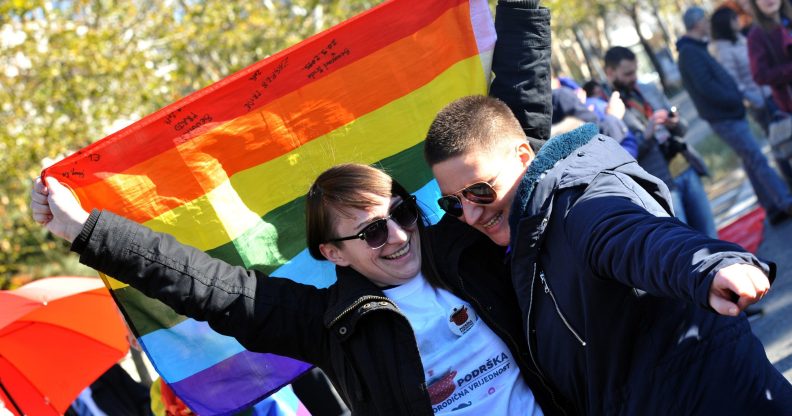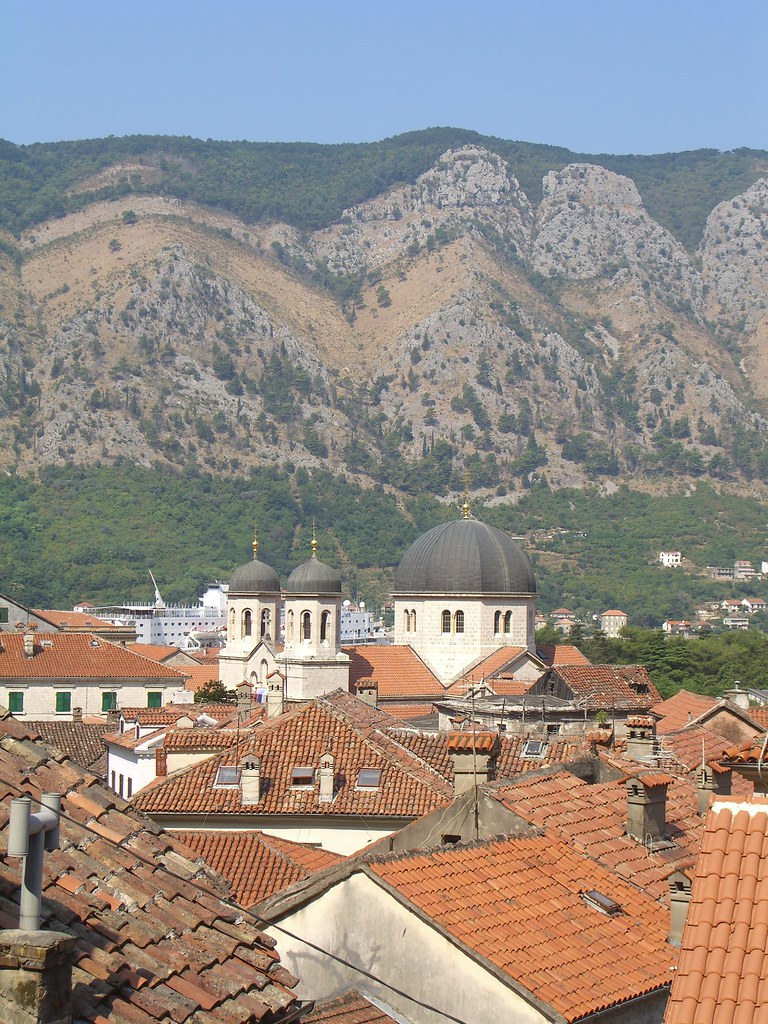Tiny Balkan country of Montenegro just made history by legalising same-sex civil partnerships

Celebrations at Pride in Podgorica, Montenegro on December 17, 2016 (SAVO PRELEVIC/AFP/ Getty)
Montenegro has just voted to legalise same-sex civil partnerships, becoming the first European country outside of Western Europe and the European Union to do so.
Lawmakers in the small Balkan country reached the decision on Wednesday (July 1) after the law received 42 votes in the 81-seat parliament.
Montenegro’s prime minister Duško Marković called it “a great step in the right direction for Montenegrin society, its democratic maturity, and integration processes”.
President Milo Đukanović also welcomed the move, declaring on Twitter that Montenegro is now “one step closer to joining the most developed world democracies”.
“[It is] a confirmation that our society is maturing, accepting and living the differences,” he added. “Born free and equal in dignity and rights!”
Unfortunately, that’s not strictly true: although Montenegrin same-sex couples are granted almost all the same rights as heterosexuals, they are still unable to adopt or foster children.
Lesbian couples are not able to undergo IVF in the country and surrogacy is banned for all couples, regardless of sexual orientation.
Nevertheless, the important move towards equality is being celebrated by the Montenegrin LGBT+ community .
The advocacy group LGBT Forum Progres, Montenegro’s first and oldest LGBT+ organisation, described the passage of the bill as “an immense step forward for Montenegrin society”.

The tiny country of Montenegro has a population of just 620,000 (Creative Commons/ the MaGe/CC BY-NC-SA 2.0)
“[It’s a] historic day for all of us and the LGBT+ movement in Montenegro!” they tweeted, thanking a series of international LGBT+ activists and organisations for their support over the years.
The tiny country of 620,000 people is currently in advanced negotiations to join the European Union, and the affirmation of same-sex unions will likely be seen as a sign of its “democratic maturity” in line with the EU’s values.
It has come as a surprise to many after the law was rejected by the Montenegrin parliament in 2019.
“I honestly I wasn’t expecting it,” John Barac of LGBT Forum Progres said to Openly. “It’s really extraordinary, it’s a big day for all of us.”

